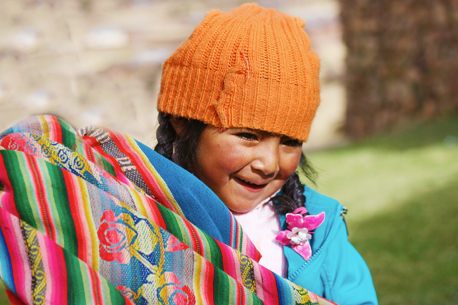Alcohol
Understanding a Devastating Pregnancy Exposure
The Center for Better Beginning’s co-director Dr. Kenneth Lyons Jones identified fetal alcohol syndrome in 1973 in a seminal paper published in the scientific journal, The Lancet. Since that time, he has been a pivotal force in new information and research into Fetal Alcohol Spectrum Disorders (FASD). Our current research on the detrimental effects of prenatal alcohol exposure focuses on 3 areas: establishing the prevalence of FASD, testing methods to identify and reduce the impact of FASD in Ukraine, and designing and testing an intervention to reduce risky alcohol consumption among Native American women of child-bearing age.

Establishing Prevalence of FASD in San Diego
Until recently, estimates of how often FASD occurs in the United States were outdated and long thought to be under-estimated. With funding from the National Institute on Alcohol Abuse and Alcoholism at NIH, our “Ready, Set, Go!” study established the prevalence of FASD in San Diego and collaborated with researchers at other locations to establish these estimates nationally. By determining the actual number of children who are affected by FASD, this information can be used by educators, researchers, and the government to help plan prevention and treatment programs. Results from the study were published in February 2018 in the Journal of the American Medical Association (JAMA) and were covered in major news outlets like ABC, CBS, CNN, Reuters, the New York Times, the Chicago Tribune, Time, and Forbes.
What We Found

Prenatal Alcohol Exposure in Ukraine
As part of the Collaborative Initiative on Fetal Alcohol Spectrum Disorders (CIFASD) and in collaboration with local investigators, our research team has been part of a long-term study in Ukraine focused on the earlier identification and prevention of FASD in four areas: (a) the contribution of pre- and post-natal nutritional factors to risk for FASD; (b) the development of a preschool neurobehavioral testing battery appropriate for early identification of affected children; (c) the utility of a novel and objective biomarker of exposure to alcohol; and (d) the exploration of genetic and epigenetic factors that may modify risk for FASD in mother/child pairs.
Find Out More

Prevention in Indigenous Communities
In an innovative, synergistic partnership with the Indian Health Council, Inc. and funded by the Native American Research Centers for Health (NARCH), our team is currently conducting research to reduce risky alcohol consumption among American Indian/Alaska Native women of child-bearing age in an effort to prevent FASD, and to develop a model and support network for Native American families affected by FASD. Through our participation in this research initiative, we have been able to raise awareness of the risks of consuming alcohol during pregnancy and test various intervention strategies to see what works best within the community. We are continuously working to establish support for families affected by FASD.

FASD Registry and Biorepository
A major problem for research on prenatal alcohol exposure is the limited number of participants that are available for studies that will help us better understand FASD. For this reason, in 2015 we established an FASD Research Registry at UC San Diego Health and Rady Children’s Hospital-San Diego (RCHSD). Children and their families are recruited into the Registry, if they consent, can be contacted to participate in future research projects. One such project in which they can participate is our FASD Biorepository. We established a bio-bank of human tissue samples (such as saliva and blood) from children with prenatal exposure to alcohol and are storing these samples for use in future research studies. The goal of the Biorepository is to provide researchers with the biological samples they need to answer important research questions that will help us better understand how to treat and help children with prenatal alcohol exposure, and how the health, learning, and behavior challenges faced by these children can be prevented.